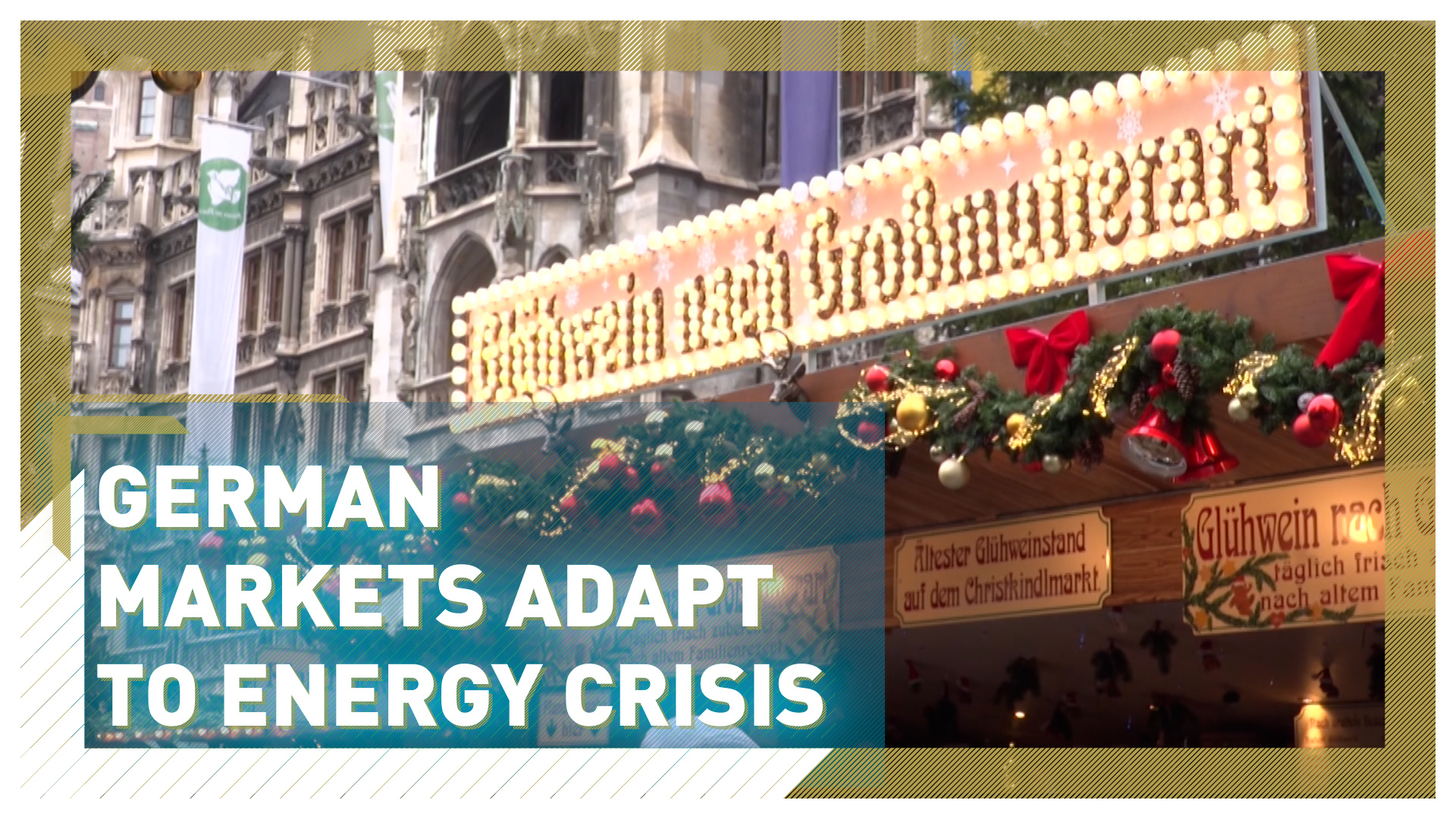03:22

To stroll through the beautiful, traditional Christmas markets of Germany is to be filled with the festive spirit by the colorful wooden huts, the smell of gingerbread and of course, the lights…
Yet as Europe struggles to ensure energy supplies, municipalities and businesses are doing what they can to limit their consumption – even at Christmas markets, says Clemens Baumgartner, top advisor for the city of Munich's Labor and Economics department.
"The Christmas tree which stands here among us is no longer lit for 24 hours," he tells CGTN. "Instead we have it illuminated only from 4 in the afternoon to 11 at night. We have also changed the previously normal light bulbs. Today we use LED lamps."
READ MORE
The Secret Betrayal: China's WWII sailors
Why are UK nurses on strike?
Austria's Krampus parades too violent to insure
The city has also made efforts to consume energy elsewhere.
"We have subjected our municipal building's energy consumption to a review," says Baumgartner. "It starts with the hot water use, especially where it is really needed, which is mostly in kindergartens and schools.
"In administration buildings it is switched off. Many municipal buildings are no longer illuminated, especially the historic ones and heating is set to no more than 19 degrees Celsius."

Christmas markets are hugely popular across Germany. /Johannes Simon/Getty Images
Christmas markets are hugely popular across Germany. /Johannes Simon/Getty Images
While this particular Christmas market is run by the city of Munich, the 30 or so others are mostly privately organized and therefore have their own say on how or even if they wish to reduce their energy usage.
Many stall owners CGTN spoke to, who are excited to be open again after two years of COVID-19 closures, have not changed their energy usage.
"Do we have an energy crisis?" asked one man running a kiosk selling miniature biblical figures. "The lights are on. The heating is on. Everything is normal."
Delaying the big hit
Another seller said she had not done anything different, but indicated that could come back to haunt her: "We will get the surprise at the end of the year, I think."
That is because energy supplies in Germany have come from more expensive sources as Berlin weans itself off cheap Russian imports. Those additional costs are being passed onto the customers.
Yet monthly energy bills are based on a yearly average and on last year's rates, so the big hit will be in 2023. Since the first quarter of 2021, gas prices for households in Germany have increased by at least 17.7 percent and electricity 1.9 percent.
This could explain why people still have money to spend at Christmas markets this year, says Ghluwhine seller Corinna: "The difference is, more people are here than before COVID-19, and they really like to spend money."

Munich's markets have opened up fully again since the Covid pandemic./ Johannes Simon/Getty Images
Munich's markets have opened up fully again since the Covid pandemic./ Johannes Simon/Getty Images
In the first few opening days, Corinna had made a quarter of her overall expected income, and she thinks people are spending their disposable income rather than worrying about upcoming energy costs.
"That is what I feel, what I see everyday," she says.
Others are more cautious. Many small- and medium-sized businesses, already struggling to recoup pandemic loses, are being weighed down further by rising food and energy prices.
One such business is Thomas Petermann's butchery. For businesses his size, gas prices have gone up 39 percent and electricity prices by 19 percent. Petermann says any further rise may lead to severe measures.
"The situation will drastically worsen, which is likely to prompt us to cut down on our staff members," he says. "We already took many measures to reduce our power consumption, but the price increases still remain dramatic."
He is worried about the future of a family business that has been around for 84 years.
"If the situation stays this way and the price increases for electricity, then I see our future being pretty bleak," he says. "I don't think we stand a chance to survive."
That might be another reason why Christmas markets are buzzing this year. People embracing the festive season while they can, as many simple enjoyments next year may be financially far out of reach.